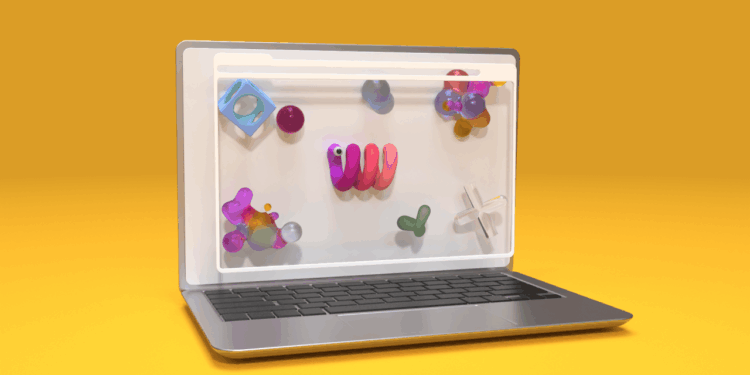In today’s fast-paced digital world, graphic designers are no longer bound by traditional tools like paper, pens, and bulky desktops. The introduction of digital tablets has completely transformed the creative industry, bringing forth tools that offer unmatched precision, portability, and power.
These tablets aren’t just replacements for drawing pads—they are full-fledged design studios in compact, mobile form.
This article explores why digital tablets are revolutionizing the field of graphic design, highlights the best devices available in the market today, and offers insights into how these tools will continue to evolve and influence the creative space.
Why Digital Tablets Are Essential for Designers
Digital tablets offer a wide range of advantages for creative professionals. Their features are not only designed to enhance productivity but also provide a more natural and intuitive way to create digital art.
A. High-Resolution Displays
Modern tablets come with top-tier displays such as Retina or OLED screens, providing exceptional color fidelity and clarity. These high-resolution displays ensure that designers can view and edit their work with absolute precision. For those working in UI/UX design, illustration, or photo retouching, having a display that accurately represents color and contrast is crucial.
B. Stylus Sensitivity and Accuracy
Styluses like the Apple Pencil and Wacom Pro Pen 2 offer thousands of pressure sensitivity levels, tilt detection, and low latency. This allows designers to replicate the feel of traditional media like pencils, brushes, and pens while gaining digital flexibility. Whether you’re sketching concepts, creating detailed illustrations, or making photo adjustments, the stylus ensures every stroke feels intentional and responsive.
C. Seamless Software Compatibility
Tablets are built to work hand-in-hand with popular design applications such as Adobe Photoshop, Illustrator, and Procreate. Whether you’re connected to a desktop or using a standalone app, the integration allows for smooth transitions between hardware and software. Designers can pick up their work anywhere without sacrificing performance.
D. Multi-Touch and Gesture Support
Most modern tablets support gesture controls for zooming, panning, rotating, and other commands, significantly improving workflow speed. This feature eliminates the need to constantly reach for a mouse or keyboard, creating a fluid and immersive design environment.
E. Portability and Convenience
Digital tablets are often slim, lightweight, and battery-efficient, allowing designers to work from studios, cafés, or while traveling. They offer the freedom to sketch ideas on the fly or edit files during client meetings, fostering creativity outside the traditional office setting.
Best Digital Tablets for Graphic Design
With so many choices available, selecting the right tablet depends on individual needs, budget, and work style. Below is a curated list of the best digital tablets suited for designers at every level.
1. XP-Pen Artist Pro 16
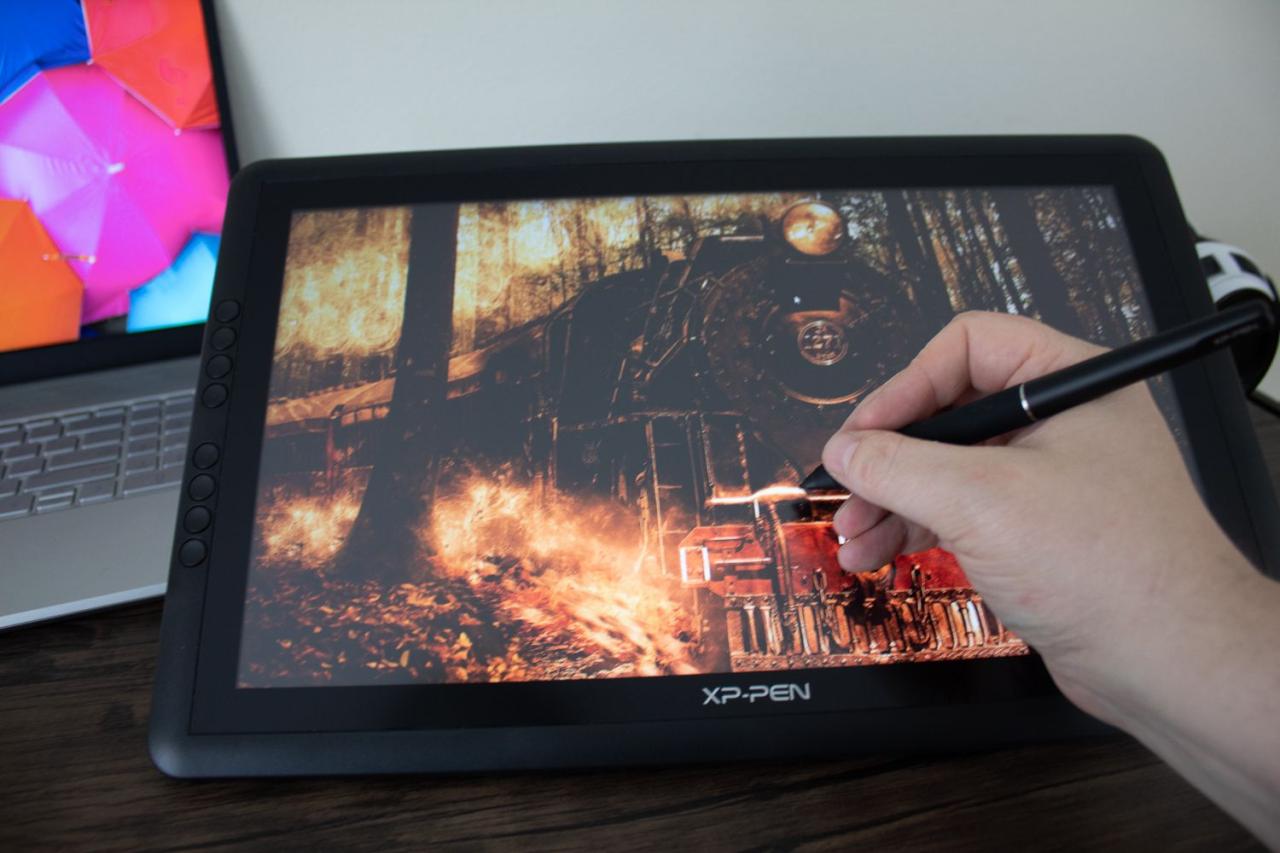
Best for Intermediate Designers on a Budget
The XP-Pen Artist Pro 16 combines affordability with powerful features. It includes tilt recognition, a high-resolution display, and customizable shortcut keys for efficient workflows. Its compact size makes it an excellent choice for freelancers and students who need professional-grade tools without the premium price.
Key Features:
-
8192 levels of pen pressure
-
Fully laminated 1080p display
-
Compatible with major design software
-
Budget-friendly without compromising quality
2. Wacom Cintiq Pro
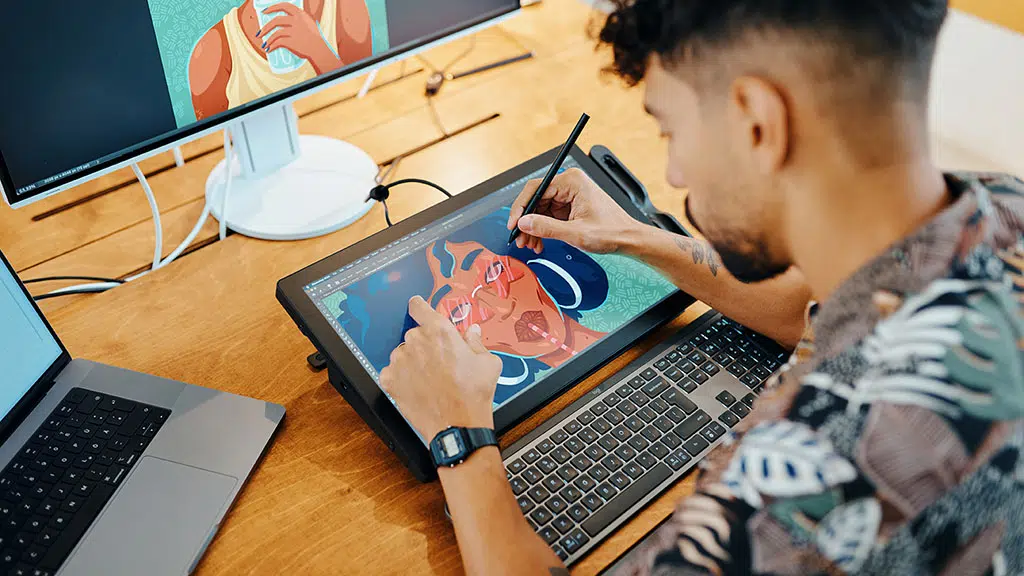
The Industry Standard for Professionals
Wacom’s Cintiq Pro line is revered among professional artists and illustrators. Known for its stunning color accuracy and precision stylus, the tablet offers a superior design experience. Its 4K display and pen with virtually zero lag make it ideal for high-end design tasks.
Key Features:
-
4K Ultra HD screen
-
Pro Pen 2 with 8192 pressure levels
-
Works with Adobe Creative Cloud
-
High durability and color consistency
3. Apple iPad Pro + Apple Pencil
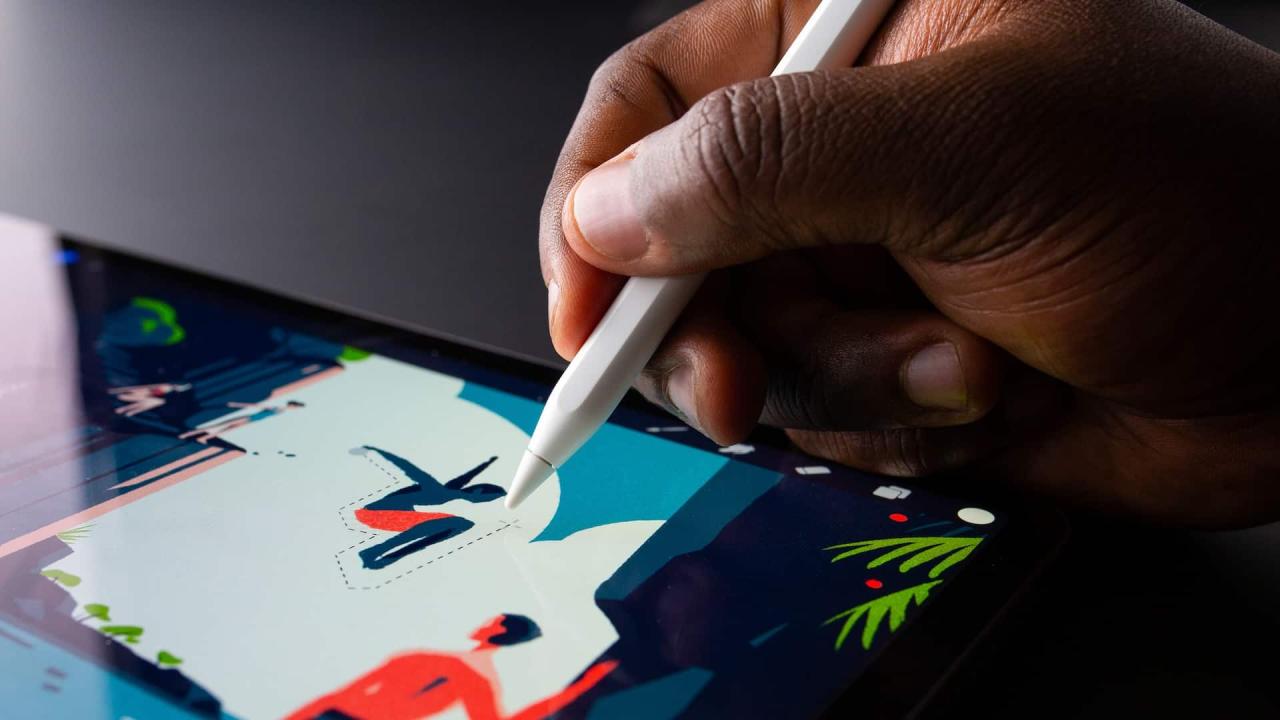
Best for Designers on the Go
The iPad Pro has become a favorite among mobile designers. With its M-series chip, ProMotion display (120Hz), and extensive app support (e.g., Procreate, Affinity Designer), it offers both power and portability. The Apple Pencil provides exceptional latency and precision, making it feel like real pen on paper.
Key Features:
-
Liquid Retina XDR Display
-
iOS app ecosystem (Procreate, Affinity, Adobe)
-
Apple Pencil (2nd Gen) with wireless charging
-
Ultra-light and thin design for travel
4. Microsoft Surface Pro 9
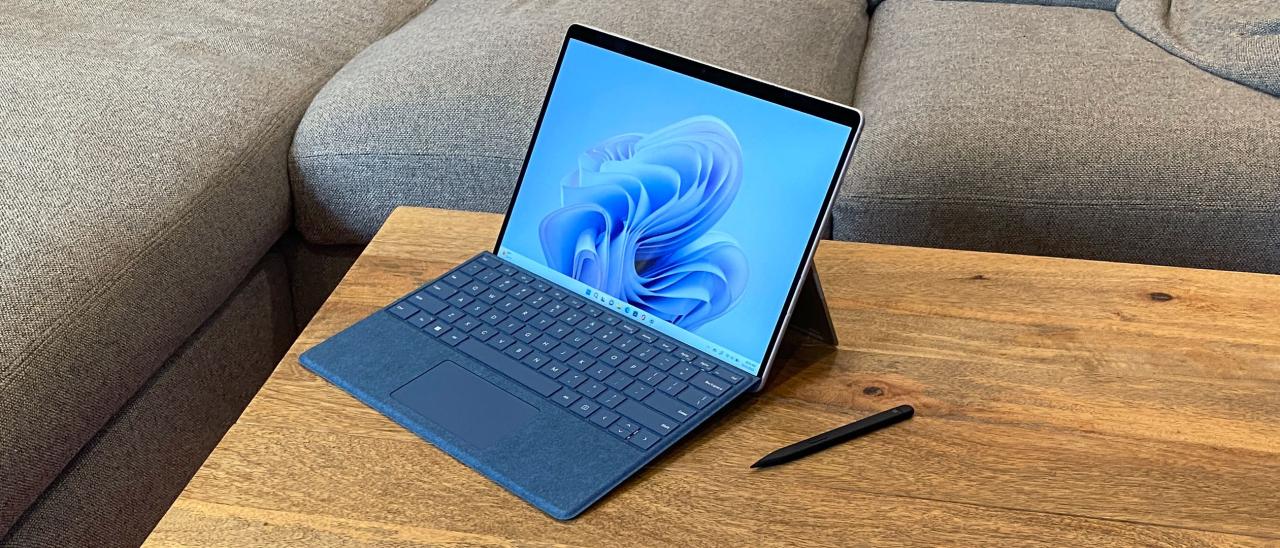
Laptop Power in a Tablet Form
Blending laptop functionality with tablet versatility, the Surface Pro 9 runs full Windows software, including the desktop versions of Adobe apps. Its keyboard attachment and Surface Pen make it a complete workstation, suitable for both designers and developers.
Key Features:
-
Runs full Windows 11 OS
-
High-resolution PixelSense display
-
Surface Slim Pen with haptic feedback
-
Ideal for multitasking professionals
5. Samsung Galaxy Tab S8 Ultra
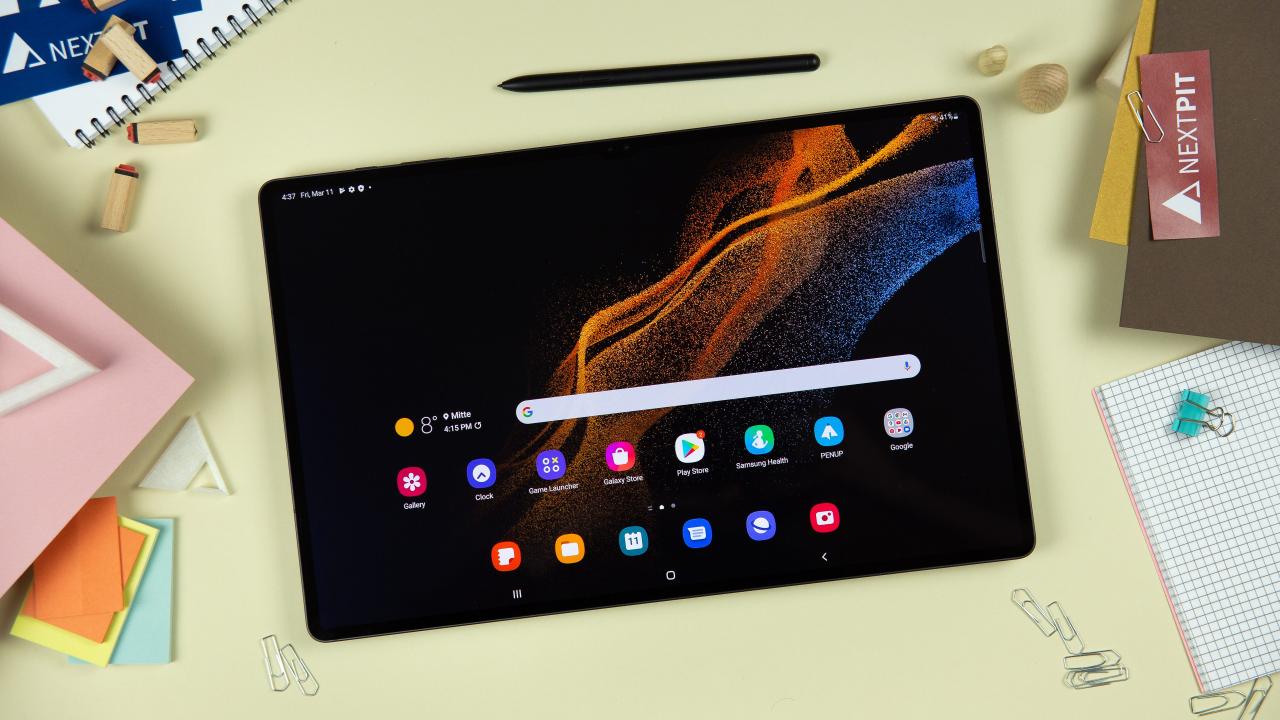
Top Android Option for Designers
For Android users, the Galaxy Tab S8 Ultra is a powerhouse. It features a massive AMOLED display, enhanced S Pen, and top-tier performance. The tablet is ideal for digital painting, note-taking, and casual graphic tasks while remaining extremely portable.
Key Features:
-
14.6-inch Super AMOLED display
-
Low-latency S Pen included
-
Android-compatible creative apps
-
Excellent battery life and build quality
6. Huion Kamvas Pro 24
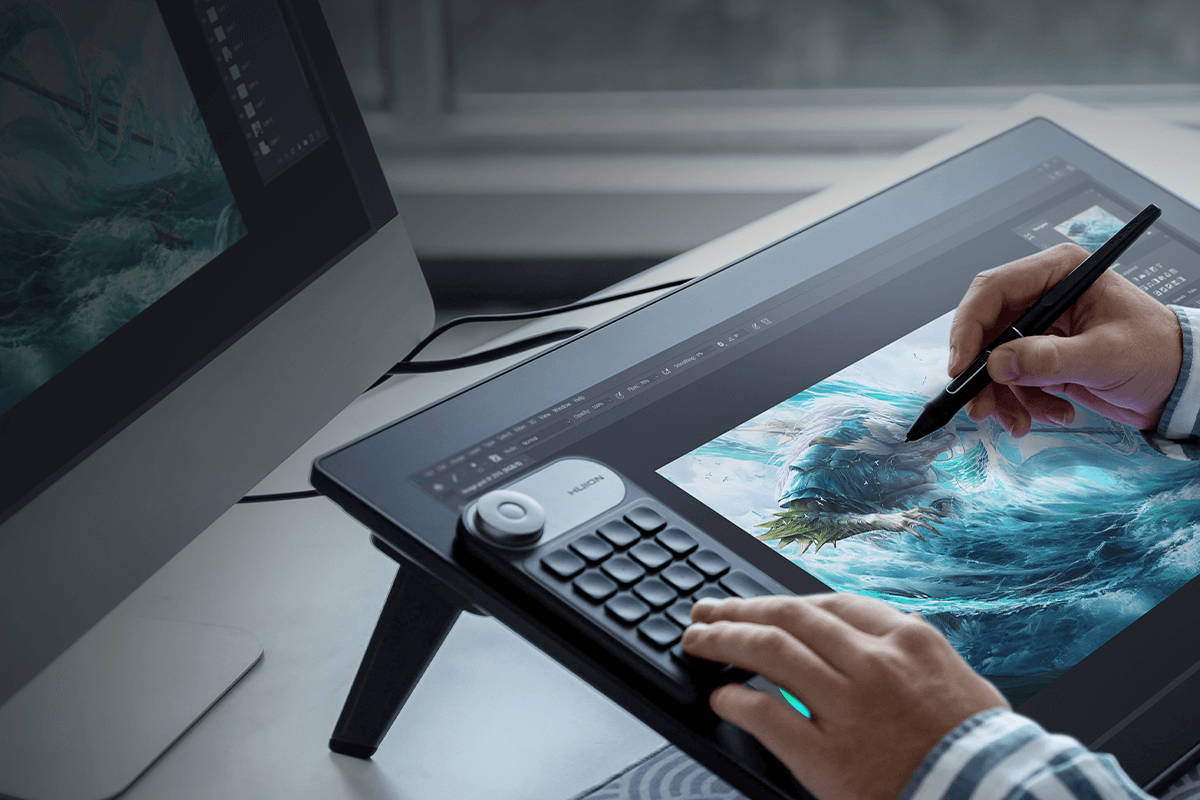
Best for Large-Scale Design Projects
With a generous 24-inch screen, the Huion Kamvas Pro 24 offers ample space for detailed design work. Its color accuracy rivals that of Wacom, and it supports a fully laminated display with anti-glare glass. Ideal for illustrators, animators, and professionals needing more screen real estate.
Key Features:
-
QHD display (2560 x 1440 resolution)
-
Pen with ±60° tilt and battery-free operation
-
Strong color fidelity (120% sRGB)
-
Great for multi-monitor workflows
How Digital Tablets Shape the Future of Design
Digital tablets are not just tools—they’re catalysts for innovation. Here’s how they’re transforming the industry:
A. AI-Powered Creativity
Many tablets now support AI-based tools like automatic background removal, object recognition, and smart color suggestions. This helps designers work faster and focus on creativity rather than repetitive tasks.
B. Cloud Integration and Remote Work
Cloud services allow designers to collaborate in real time with clients and teams around the world. Files can be shared instantly, and edits made collaboratively, increasing efficiency and reducing turnaround times.
C. Environmentally Friendly Alternatives
Many tablets now use sustainable materials and eco-friendly batteries. Paperless workflows also contribute to reducing environmental waste—a growing concern in the design community.
D. Customization and Modularity
Modern tablets often allow users to remap keys, change pen pressure curves, and switch accessories, offering a personalized experience. This is especially helpful for designers with specific needs or accessibility concerns.
Choosing the Right Tablet for Your Needs
When selecting a digital tablet, consider the following factors:
A. Type of Work
Are you illustrating, editing photos, designing interfaces, or creating animations? Each tablet has strengths suited for specific workflows.
B. Portability vs Workspace
Do you need to travel frequently, or do you work from a dedicated studio? Tablets like the iPad Pro are more portable, while the Huion Kamvas Pro is better suited for stationary setups.
C. Budget and Software Ecosystem
Factor in both the cost of the tablet and the software you’ll use. Apple devices, for example, offer powerful apps but may require subscriptions. Windows and Android tablets can offer more affordable solutions for different needs.
Conclusion
The world of graphic design is constantly evolving, and digital tablets have proven to be indispensable tools for modern creatives. They empower designers to explore, create, and deliver their best work from anywhere in the world. From budget-friendly picks to professional powerhouses, there’s a tablet out there for every designer.

